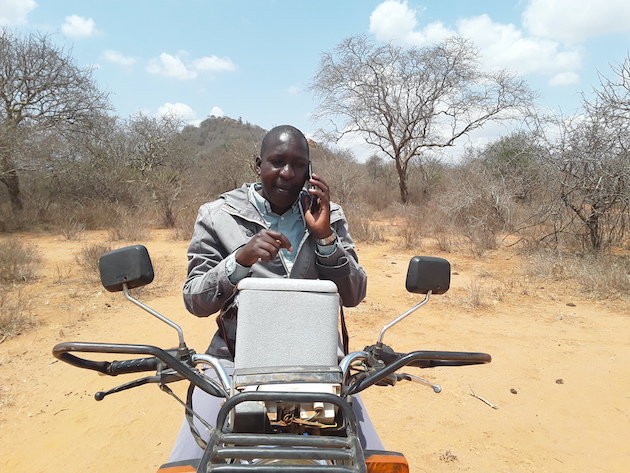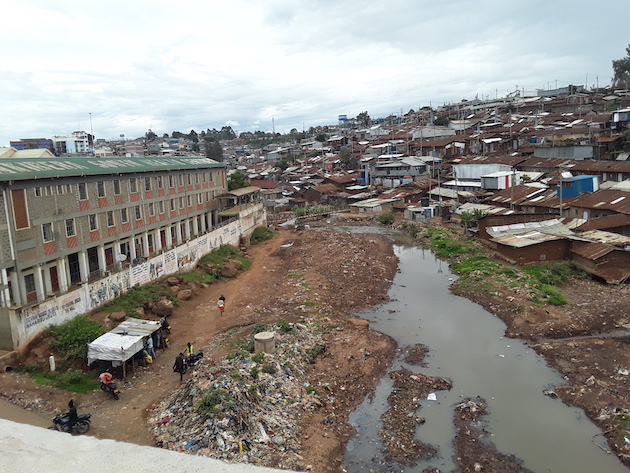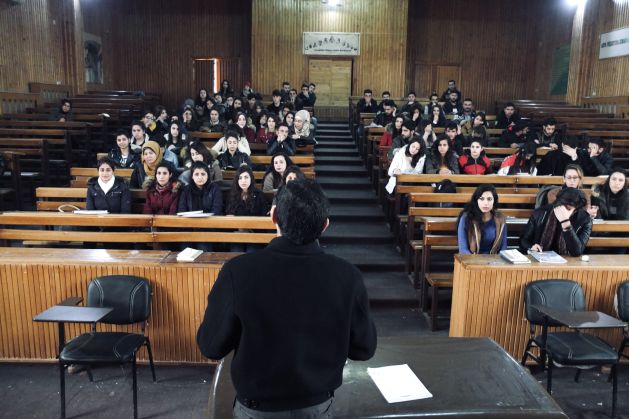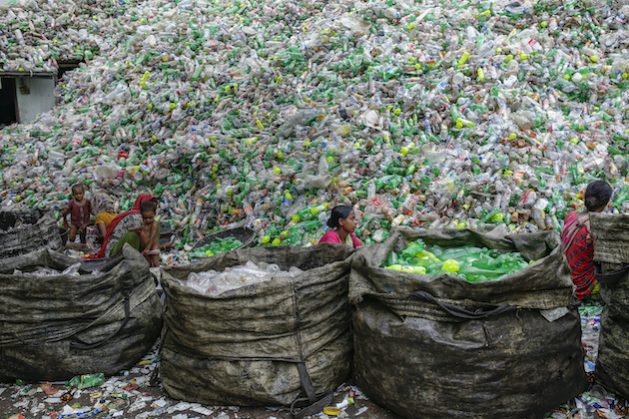Time for Tangible, Impactful, & Accountable Climate Action — Global Issues
OAKLAND, California, Aug 29 (IPS) – African leaders, public officials, and private-sector executives will converge in Nairobi, September 4-6, at the Africa Climate Summit (ACS) – coinciding with the UN Africa Climate Week (ACW). In recent years, Africa has been the poster child for climate solutions, with carbon credit and offset projects gaining popularity among the public and private sectors alike.
These schemes allow companies, primarily from the Global North, to “offset” their carbon emissions by funding forestry and land management efforts across Africa. Despite the hype around these solutions to climate crisis, serious concerns remain about their efficacy and negative consequences.
And yet, carbon credit and offset schemes will be at the center stage of the Summit, pedaling false climate solutions. With a lot on the line in the coming week, it is imperative to examine closely what some of these carbon credit and offset “solutions” entail – both for the consumers and the communities involved.
For several years, the Northern Rangelands Trust (NRT), a wildlife conservation NGO, has managed a multitude of “community” conservancies in Kenya and operated the Northern Kenya Grasslands Carbon Project (NKGCP), which they describe as “the world’s largest soil carbon removal project.”
Built on the premise that grazing practices of the Indigenous communities in Northern Kenya are unsustainable and that NRT’s model of “planned grazing” will allow for substantially more carbon to be sequestered, it offers on option for companies including British Airways, Meta, Netflix, and Salesforce to “offset” their emissions.
NRT also claims to promote community livelihood, aid endangered wildlife, and usher in a new wave of environmental sustainability, making it worth looking at whether their actions live up to what they state.
For one, it is extremely difficult to prove whether the NKGCP actually removes as much carbon as claimed. The Project’s credits are verified through DC-based company Verra – specializing in setting standards and verifications for carbon projects – that have been called out numerous times for exaggerated claims.
An investigation by The Guardian, Die Zeit, and SourceMaterial, revealed that only a handful of Verra’s rainforest projects showed evidence of deforestation reductions, 94% of the credits had no benefit to the climate, and that the threats to the forests claimed in its projects were overstated by about 400%. Outside of discredited Verra, it is near impossible to prove if NRT is making a difference.
According to Survival International, an Indigenous rights group, NRT’s “grazing strategy” is disruptive to the natural grazing patterns of the pastoralists as well as the relationships, traditions, and structures that hold the communities together.
NRT has allegedly displaced the local communities in the region, taken control of their agricultural and herd management practices, and imposed their own standards of what “sustainability” should achieve with little care for traditional methods that have stewarded this land for thousands of years.
Additionally, breakdown of the traditional grazing systems is endangering food security of the locals – who lack information about the project, let alone having provided their Free, Prior, and Informed Consent.
There are several reports of human rights abuses involving NRT against the Indigenous communities in Northern Kenya. The gravest allegations concern the rangers who patrol NRT’s conservancies – accused of intimidation and violence against the very communities NRT claims to support.
And, it is worth learning where the money NRT takes in is actually going. Theoretically, large sums of cash are promised to the communities, but the truth is far from what NRT claims. Up to 30% of project revenues are distributed directly to Native Energy, an American consultancy firm responsible for marketing the credits to corporate partners.
The remainder of project revenues are managed by NRT – of which 40% is retained for a variety of costs including land management and “conflict resolution.” When looking at the language NRT uses in its financial reports, it is not “communities” who are entitled to the NKGCP’s profits, but rather “community conservancies” with pastoralists not in control of how the funds are used. 30% of total project revenues are split up between these conservancies – with each conservancy receiving just over 2% of the funds.
But, anywhere between 20-40% of this already small slice is required to be spent on tasks like “grazing management” and other tasks which NRT directly oversees. With all the entanglements of NRT’s carbon scheme one thing is clear: communities in Northern Kenya are not benefitting and are instead losing control and access over the natural resources.
Schemes purportedly managed by the public sector appear to carry their own array of problems. A prime example is the Uganda Carbon Bureau, which manages a series of credit and offset schemes with private-sector partners, through the intermediary, Environmental Conservation Trust of Uganda (ECOTRUST).
For several years now, they have partnered with Plan Vivo through its Trees for Global Benefits (TGB) program to sequester carbon by “encouraging sustainable land use.”
As part of the program, farmers plant swaths of new trees in return for direct payment and a litany of purported benefits including inducing “No Poverty” in the regions where TGB operates. Despite these bold claims, Plan Vivo’s 2021 report revealed that nearly a quarter of farmers did not meet their “performance targets.”
Those who fail to meet the targets are cut off from any financial compensation with little notice. Much like with NRT, there is no way to prove if the program actually sequesters more carbon, and Plan Vivo offers little more than assurances of “increased biodiversity” in their official material.
TGB’s effects on communities in Uganda have reportedly been profoundly negative. A report by the Global Forest Coalition revealed that Plan Vivo and ECOTRUST have been notoriously difficult in working with the farmers, often neglecting to inform them about payment schedules and amounts, shifting target requirements, and cutting off compensation at their will.
Many participants were not adequately informed about the 25-year-spanning contracts they signed – only offered in English – with scarce opportunities to provide feedback.
Though Plan Vivo claims to alleviate food insecurity through its scheme, it is accused of doing just the opposite. The trees planted through TGB are on the land that farmers previously used for growing crops for their families and sell for a somewhat-steady income.
After the trees are planted, the land is no longer usable for agriculture, and TGB’s contracts stipulate that they have the final say over land use. Cash payments through the program are reportedly rarely enough to compensate for income lost, and many families have been left worse off than before.
Despite clear warning signs, the government of Uganda, has continued to promote Plan Vivo, even though carbon sales come nowhere near meeting the operational costs, as disclosed in its Annual Report. In order to recoup losses, TGB relies on funding from a slew of donors including the United Nations Development Programme, the United States Forestry Service, and the Dutch Government. The scheme is inherently unsustainable – it is only a matter of time before the farmers are abandoned with growing uncertainty over their futures.
False climate solutions like Trees for Global Benefits and the Northern Kenya Grassland Carbon Project are not up to the task, but will be showcased at the Africa Climate Summit as the way forward. The claims they make are significantly overstated and end up causing far more harm to the communities who are being duped into signing shifty contracts, dispossessed of their land and authority, and made vulnerable to continued, persistent abuse. Corporations are choosing to offload their “climate guilt” onto the Global South, while shoring up revenues by slapping “net zero” on their products.
Carbon credit and offset projects obviate real, substantive measures needed to tackle climate change; they are a diversion of time and money away from solutions that matter. It is essential that African leaders challenge these false solutions and demand tangible, impactful, and accountable climate action – more than just greenwashing the corporate guilt of the global North at the expense of Indigenous communities across the continent.
Arjun Amin, a Junior at The College Preparatory School in Oakland, CA, did a summer internship at the Oakland Institute (www.oaklandinstitute.org), examining carbon credits schemes as a solution to climate crisis.
IPS UN Bureau
Follow @IPSNewsUNBureau
Follow IPS News UN Bureau on Instagram
© Inter Press Service (2023) — All Rights ReservedOriginal source: Inter Press Service
Check out our Latest News and Follow us at Facebook
Original Source







